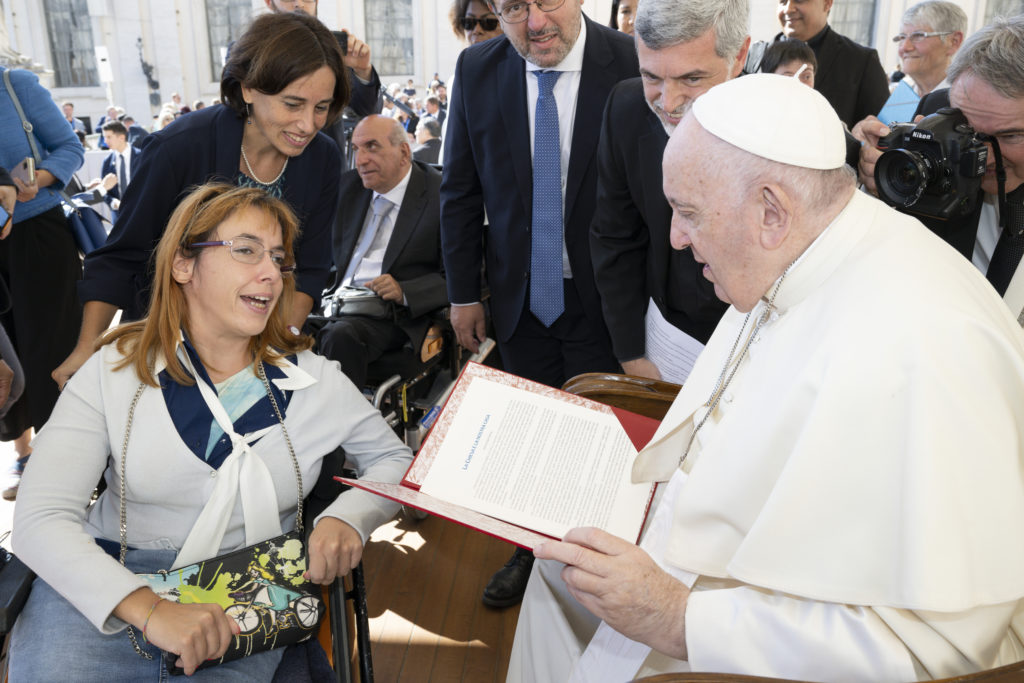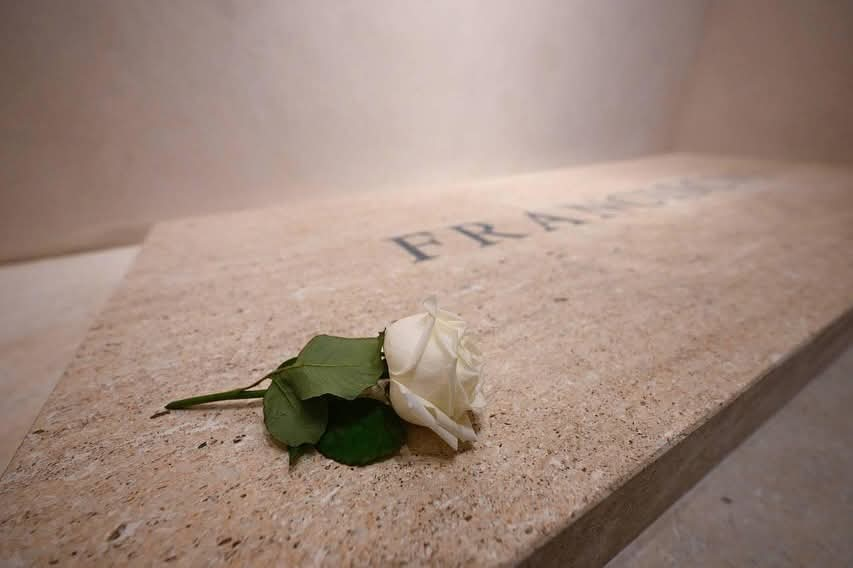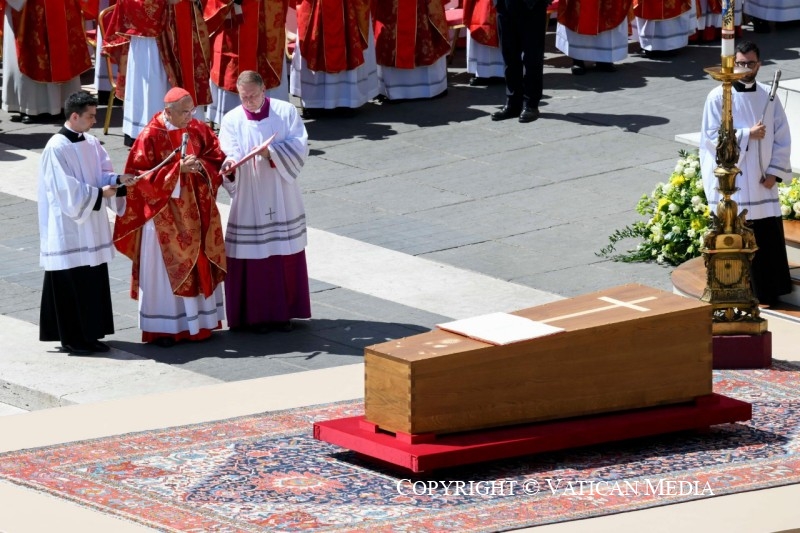“Us, not them”, the Synod as a path for including people with disabilities
The results of the synodal listening session were delivered to the Pope

Today, at the end of the General Audience, a number of people with disabilities met with the Holy Father and presented him with the most significant results of the special synodal listening session they participated in over the past few months.
Last May, the Dicastery for the Laity, Family and Life, in agreement with the General Secretariat of the Synod, invited some faithful with disabilities to actively participate in the synodal journey by bringing their contribution through an open dialogue with the Holy See. These were people from the five continents representing bishops’ conferences and international associations who, in many cases, had already
participated in synodal consultations at the diocesan level.
After an online meeting that launched the process, everyone was invited to send in their own written text, starting with the Synod’s fundamental inquiry on Synodality. In these days, a team representing all the participants in the listening session met in Rome to deliver the synthesis of the work to the General Secretariat of the Synod.
This initiative stems in the wake of the reflection that the Dicastery launched about two years ago with regard to the inclusion of persons with disabilities and their full participation in the life of the Church: for an institution called to deal with the lay faithful, this is not simply a new area of pastoral action, rather an affirmation – a decisive one – that the baptismal vocation is truly for everyone, with no exclusions.
The synod journey proved to be a particularly fruitful time to respond to the fundamental issue that the faithful with disabilities present with respect to the life of the Church: being fully included in the life of God’s people.
From the work of these months of consultation, it has resulted that some concrete steps need to be taken in order to achieve this. First and foremost, there must be a change of mentality that involves saying “us, not them” when speaking about people with disabilities; recognizing – as Pope Francis recently did – that there is a true “magisterium of frailty”; working so that our ecclesial communities become accessible, both in terms of removing architectural barriers and allowing the participation of those with sensory or cognitive disabilities; reaffirming that “no one can refuse the Sacraments to people with disabilities”; understanding that disability is not inevitably linked to suffering and that societies and the Church can do much to avoid unnecessary discrimination.
On the other hand, the synod path has been an opportunity for those faithful with disabilities who travelled along it to understand more deeply how, in order to live one’s life to the fullest, it is necessary not to consider oneself only as a person in need but, like everyone else, called to give to others: “we cannot limit ourselves to fighting for justice and inclusion for ourselves.”
Even with this in mind, a request was made that at least one person with disability be allowed to participate in the work of the Synod on Synodality.
Delivering the synthesis to the Pope, one of the participants said: “We thank you because the Synod has given us the opportunity to make the Church even more inclusive”. The Holy Father replied: “I give thanks to you! Please continue to pray for me”.
Infos:
Pamela Fabiano
Ufficio comunicazione e stampa
Tel: +39. 339.4034163
Email: [email protected]
Related

Cardinal Parolin at the Novendalia Mass: “Mercy leads us to the heart of faith”
Exaudi Staff
27 April, 2025
8 min

Pope Francis’ Tomb in Santa Maria Maggiore
Exaudi Staff
27 April, 2025
1 min

Mercy and the joy of the Gospel are two key concepts of Pope Francis
Exaudi Staff
26 April, 2025
9 min

Thousands of faithful bid farewell to Pope Francis in St. Peter’s Square
Exaudi Staff
26 April, 2025
2 min
 (EN)
(EN)
 (ES)
(ES)
 (IT)
(IT)

